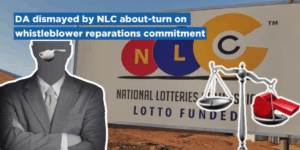The City of Cape Town’s Council has approved the sale of land in Woodstock for affordable rental housing opportunities. Vacant land in Pine Road and Dillon Lane is proposed for development, subject to all due processes that specifically apply to these pieces of land.
Council’s approval means that these pieces of land can now be sold for the development of social housing. The deeds of sale for the land in Pine Road and Dillon Lane are expected to be concluded at the end of November 2019, if all goes according to plan.
‘We are beginning to rewrite the story of our city. We are grappling with many of the same spatial inequality realities that other South African cities are also working on, and this is all happening against a background of high rates of urbanisation and much pressure on urban centres and governments.
‘This is a complex journey but the City will forge ahead and will continue to assess City-owned land, including suitable land in and near the Cape Town CBD and other urban centres to determine whether some of these properties could be developed for housing opportunities,’ said the City’s Mayoral Committee Member for Human Settlements, Councillor Malusi Booi.
What next?
| Pine Road (*expected) | Dillon Road (*expected) |
| Deed of Sale (November) | Deed of sale (November) |
| Planning approvals (November or February 2020, subject to appeals) | Application for rezoning (date to be determined) |
| Start of construction (May/June 2020) | If rezoning process is approved, planning processes completed, it is foreseen that construction could start in July/August 2021 and completion by October/November 2022. Application period for opportunities could be open from February 2021. |
The parcels of land, which together comprises more than a hectare in size, will be transferred to the Social Housing Company (SOHCO) at a nominal value of 10% (or some R4,3 million excluding VAT) of the market value of approximately R43 million. This reduction is necessary to make the project financially viable for the social housing partner. Approximately 240 social housing opportunities are foreseen to be developed on the total consolidated site, if all goes to plan.
According to City policies, the City may discount City-owned property for certain purposes which includes social housing developments and social and community purposes.
‘To cater for the accommodation need in and near urban centres, we are going to have to build stronger and lasting partnerships across all sectors of society, be they housing partners, NGOs, resident associations, private sector financiers, communities and political structures across the spectrum. This is a housing model that has so much potential if we all work together. The City’s administrative and political leadership remains utterly committed to redefining the spatial patterns in our city. To do this, we will continue to look for suitable land near urban centres and act to prevent the illegal occupation of land which places all of our delivery programmes at risk,’ said Councillor Booi.
Other projects under way
The rezoning application for the Salt River Market site was approved which will allow for a mixed-use development on the site and will include 216 social housing units in addition to business and retail space.
The City, as one of the stakeholders, remains committed to driving more affordable and social housing opportunities around Cape Town’s city centres on suitable sites such as the Salt River Market site, the Woodstock Hospital site, the Pine Road site and the Fruit & Veg site in Zonnebloem as well as other suitable areas across the city while following due process.
Did you know?
- Social housing is rental or co-operative housing for low and lower income households earning between R1 501 and R15 000 per month
- It is managed by accredited social housing institutions (SHIs)
- SHIs are solely dependent on rental income. They receive no operational grants. They are able to service their debt finance through rental income
- As with any rental contract, tenants formally enter into lease agreements. The landlord is the SHI
- If tenants do not adhere to their lease agreements, the responsible SHI will follow the necessary legal process. Tenants must therefore pay to stay
- The City has nothing to do with the day-to-day management of SHIs, the rental amount or evictions for not paying
- Before potential beneficiaries can apply for social housing, they are required to register on the City’s Housing Database
- Projects are developed on well-located, accessible land in and near urban centres
- It is not low-income subsidised government housing, such as Breaking New Ground (or the commonly called RDP housing and it is not City Council Rental Units)
- It is managed with 24-hour security and access control
- The City may discount City-owned property for social housing developments to make projects economically viable
- Social housing offers improved access to social facilities and other amenities
- A single grant subsidy can benefit on average five households versus one household for Council rental units
- Social housing adds value to vacant pieces of land
- Social housing has the potential to improve property prices in an area e.g. Scottsdene Rental Estate where surrounding properties are increasing at a higher rate than other properties in Scottsdene




